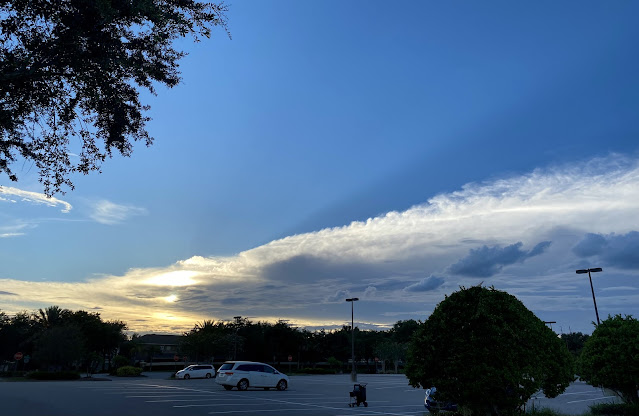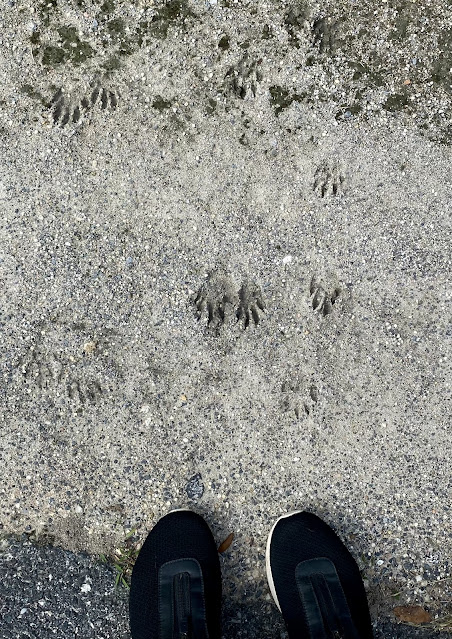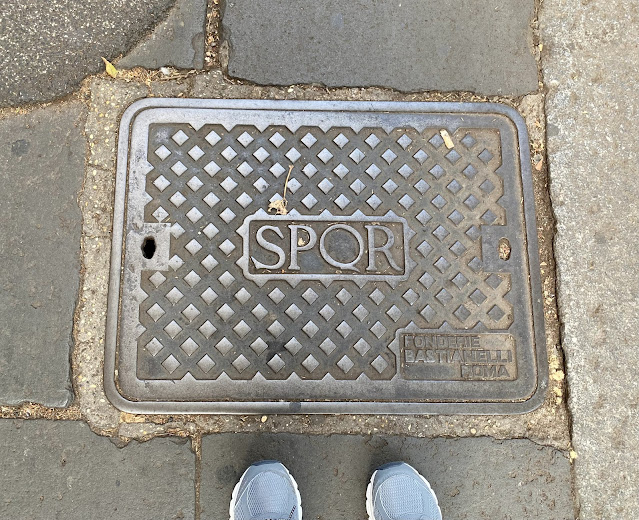Friday, August 30, 2024
Wednesday, August 28, 2024
Saturday, August 17, 2024
The Tampa Museum of Art
A few pictures from my visit to the Tampa Museum of Art.
Set of Tools, Roman Imperial period, 1st-2nd century CE.
This bronze set of tools hanging from a ring includes items such as tweezers, a spatula, and a straight pin. Reminiscent of a key chain or a Swiss Army knife.
Untitled, by Roger Williams, 1975.
This painting was large and striking. Upon a closer look, you could see the incredibly fine brush strokes of the artist’s hand. The lines were so crisp and the colors so smooth; it was remarkably precise in its execution.
Dove Earring, Greece; late Classical - early Hellenistic period, 4th-3rd century BCE.
A single delicate gold earring with a dove and a red carnelian bead. The dove was beautifully crafted with incisions to mark the feathers. It even had little feet.
Wedding Scene, Greece; classical period, 400 BCE.
The description read: “This red-figure fragment comes from a loutrophoros, a type of vessel often used in a bride’s pre-nuptial ritual bath or in the funeral rituals for unmarried women. The vase painting depicts a wedding scene with the groom on the right, holding the hand of his bride on the left. Of interest here is that the vessel was deliberately broken and burned, pointing to a funerary ritual lamenting a young woman’s early death.”
Little Master Cup, Greece; Archaic period, 540-530 BCE.
Between the figures of a siren and a sphinx an inscription translates to “rejoice and drink up”.
Bag with Natron, Egypt; New Kingdom, 1323 BCE.
The description read: “This unseemly linen bag was found in a pit with refuse from the embalming process of Pharaoh Tutankhamon fifteen years before the discovery of King Tut’s famous tomb by Howard Carter in 1922. The bag is filled with natron (hydrated soda ash combined with other minerals), used in the king’s mummification process.”
Gourd-Shaped Container, Italy; Archaic period, 625-575 BCE.
This unusual ceramic vessel was made in the shape of a gourd and painted with birds, sphinxes, and geometric latticework. There were holes on the vessel and the lid for a cord to be used to hold them together in place.
Gold Earrings, Italy and Greece, various time periods from the 4th century BCE to the 2nd century CE.
This lovely display was full of earrings with incredible craftsmanship. I am always struck by the intimate nature of jewelry. Every piece was unique, ornate, and highly personal. Some may have been gifts to a loved one. Many looked remarkably modern.
Hera, (no artist listed), 1927.
This was a plaster model for a sculpture of the goddess Hera. The pencil markings were used to help the artist make copies. The tiny “x” markings actually resembled the pattern on the bride’s dress from the broken piece of pottery from the Wedding Scene above.
Thursday, August 15, 2024
Wednesday, July 31, 2024
Wild Strawberries
My friend Rochelle grows wild strawberries in her garden. They are much smaller than their cultivated counterparts, but still a delight to eat and full of flavor.
Tuesday, July 30, 2024
Grounded: The Art of Looking Down (Part 15)
Standing on my patio with a rescued stray that would become my sister’s pet cat Amelia.
Walking in the woods near my sister’s house I stumbled upon raccoon tracks (above) and bear tracks (below).
Standing in the driveway of a prospective property while helping my friend look for an apartment.
Walking the streets of Rome.
Standing on the beautiful marble floor of The Pantheon, with the reflected light from the oculus.
Sitting in a lounge chair on the deck of the cruise ship around 1:00 am with my reflection, the moon in the top left, and the volcanic island of Stromboli visible between the gap in the glass.
Letting the tide wash over me at Kertos Beach on the island of Crete.
Enjoying The Mediterranean from our room on the ship.
Labels:
Beaches,
Grounded: The Art of Looking Down,
Mediterranean Cruise,
Pets,
Photography,
Rome,
Travel
Sunday, July 28, 2024
Subscribe to:
Comments (Atom)



























